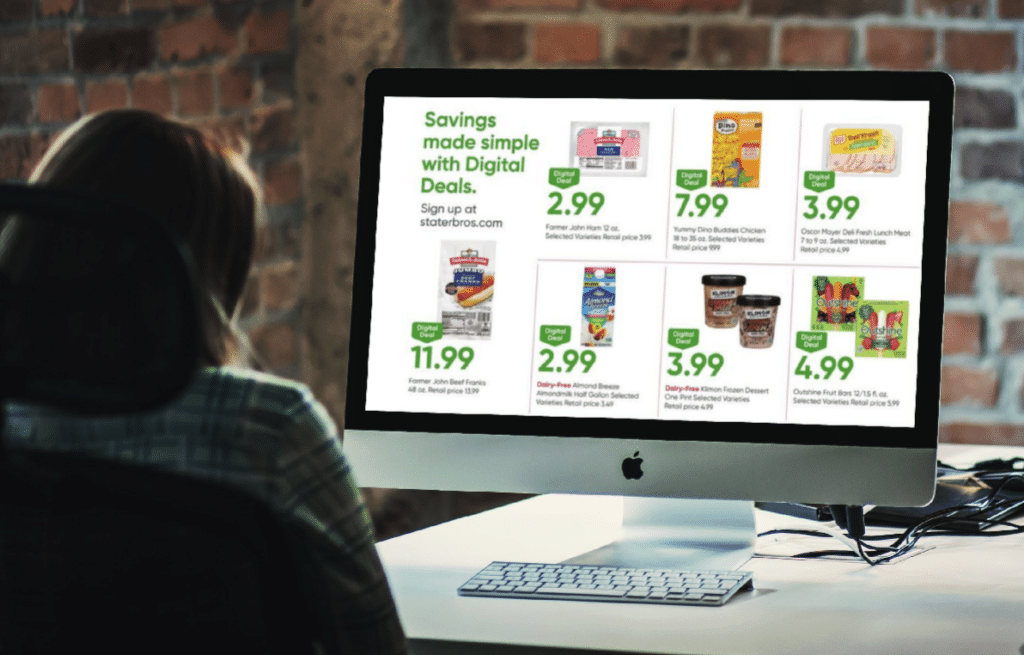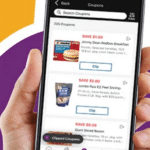
Over the past couple of years, state legislators have shown an increased interest in regulating how digital coupons are offered and used. Now, it’s happening again, as lawmakers in one state want to make sure you can get digital coupon discounts, even if the coupon is expired and the product you want to buy is out of stock.
Two New Jersey state Assemblymen have introduced a bill that would require retailers to offer a rain check for any advertised digital coupon if the product isn’t available, regardless of whether the coupon expires before the rain check does.
A retailer that “offers a digital coupon shall, if the item is not currently available in stock as advertised to the public, make available a raincheck for not less than 60 days that would allow the consumer to obtain the same product, service, or benefit at the same price, discount or on the same terms and conditions as that provided by the digital coupon,” the bill reads.
The measure is co-sponsored by Democratic state Assemblymen Joe Danielsen and William Sampson, neither of whom responded to requests for comment about what precipitated their bill.
But it appears to be the latest legislative effort to address the blurring of lines between an advertised sale and a coupon. More stores these days, particularly grocery stores, feature sale prices in their weekly circulars that are only available if you first clip a digital coupon or otherwise activate the offer online through your loyalty account.
That practice was called out by the consumer group Consumer World back in 2022, which said these digital-only discounts were misleading. “These items often replace some conventional weekly specials,” where the advertised price is the price you pay in the store, Consumer World founder Edgar Dworsky explained. Instead, these “price after coupon” ads prominently display a “sale” price that’s only available if you activate a digital offer first, and far less prominently display the price you’d actually pay if you don’t.
So what happens when one of these advertised products is out of stock and you request a rain check? Do you get a rain check for the “price after coupon” or for the actual selling price without the digital offer?
Federal Trade Commission guidelines require retailers to honor advertised sale prices when products are out of stock. One way retailers can do so is by offering a rain check, allowing you to get the sale price after the sale is over, once the product is available again.
But it gets murky if the “advertised sale price” is actually a “price after coupon.” Nothing in the FTC regulations require retailers to offer rain checks for coupons, if the coupon expires before the product is restocked. Some retailers will honor expired paper coupons as long as they were valid at the time the rain check was issued. But it gets more difficult with digital coupons – once an expired digital offer disappears, how can you prove there ever was one, and that you had clipped it, and that you hadn’t already used it? And who pays for that discount – the manufacturer that offered the now-expired coupon, or does it come from the retailer’s own pocket?
This proposed law would force retailers to figure that out. If a store is going to advertise a “price after coupon,” then that’s the advertised price, according to this legislation. Shoppers who get a rain check shouldn’t have to pay more than that just because a digital offer valid at the time of the advertisement is no longer available.
That said, it’s unclear whether the legislation would pertain only to digital discounts advertised in weekly circulars. The bill addresses products “advertised to the public in a digital coupon.” Does that mean advertised in a printed ad, or is the very existence of a digital coupon in a store’s online coupon gallery considered to be a deal that’s “advertised to the public”? The bill as currently written doesn’t say so specifically.
That Consumer World report about digital-only discounts set off a debate over whether they were unfair to shoppers who lacked digital access. That debate subsequently prompted lawmakers in several states to propose legislation that would give the digitally-disconnected the same access to discounts as digital coupon users.
This latest proposed legislation puts a new spin on things, by aiming to ensure that even the digitally-savvy don’t miss out on deals, if the product they wanted to buy sells out. Digital coupons are supposed to be so much more convenient than clipping and sorting and remembering to use paper coupons. But as the list of proposed laws about digital coupons lengthens, it seems the concerns that they raise are a whole lot more complicated.
Image source: Mockupr











This would be a game changer for us slick dealers